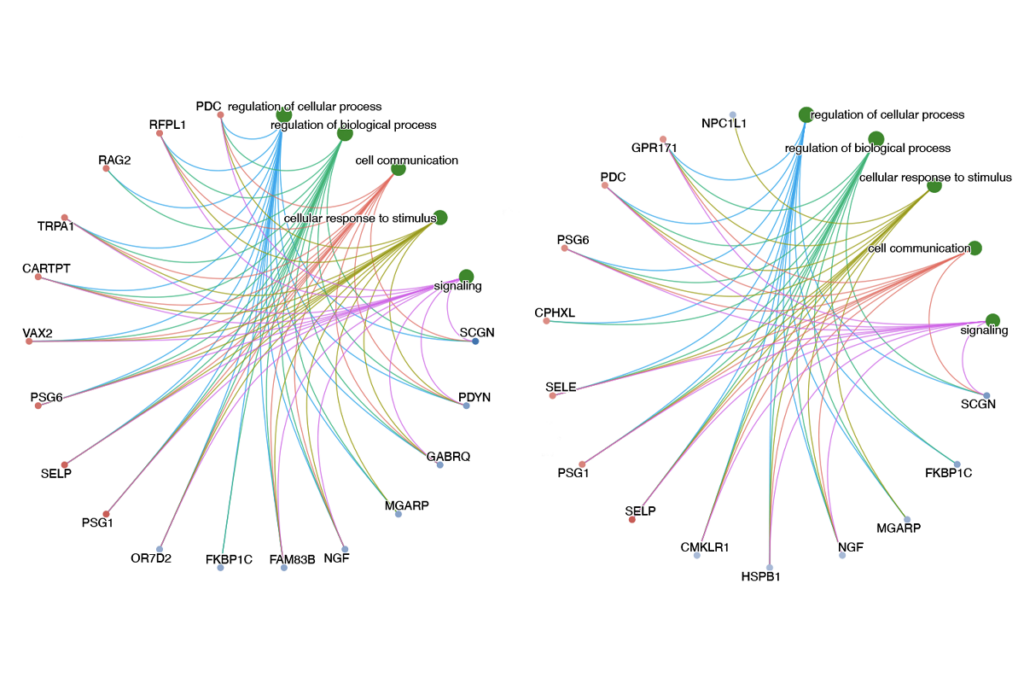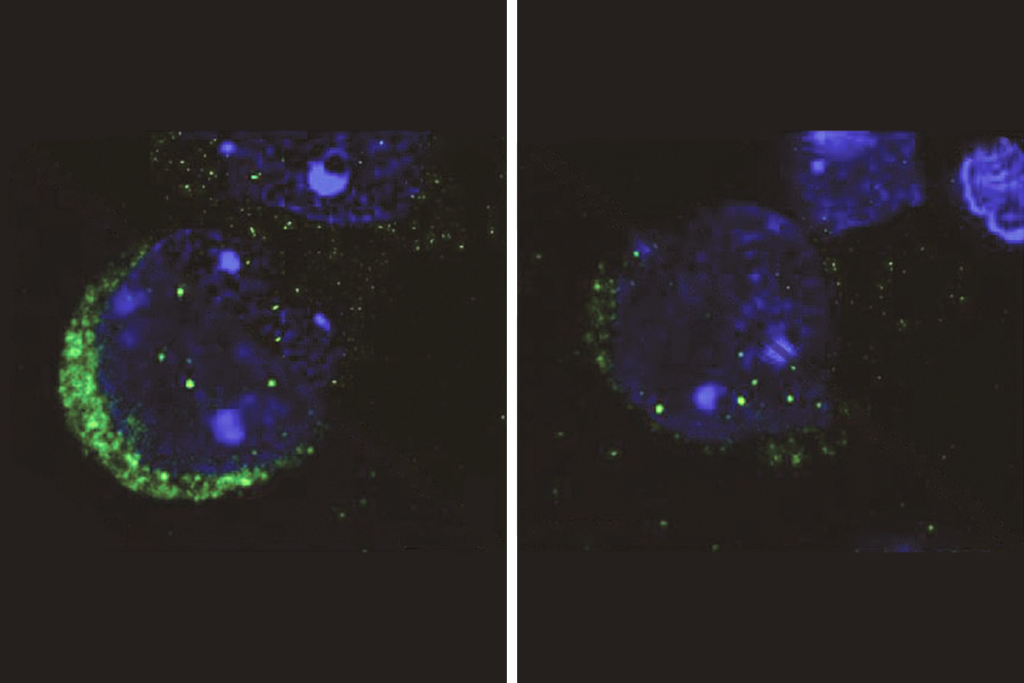BAP and blue
Depression in mothers of children with autism may not be a consequence of their child’s condition, but of their own genetic profile, says a provocative new study.
Raising a healthy child is hardly a stress-free experience, as most parents can testify. So it’s not surprising that parents of children with autism, who deal with even greater parenting pressures, have higher rates of depression than do those of healthy children. But it doesn’t explain why parents of children with autism are more likely to be diagnosed with clinical depression even before their child is born.
Researchers are exploring whether higher rates of depression in these parents stem from autism-like traits they share with their children. A new study shows that these traits — problems with language, communication and social skills not severe enough to merit a diagnosis of autism — may increase mothers’ risk for depression and parental stress even when they do not have a child with autism.
This broad autism phenotype (BAP) has previously been linked with depression in a 2006 study by Japanese researchers, though other studies have found no such association.
In the new study, researchers recruited 90 mothers of children on the autism spectrum — of whom 70 completed the study — through the Interactive Autism Network, an online service connecting researchers to families affected by autism. They recruited another 94 mothers of healthy children through StudyResponse, another online service that links researchers with individuals willing to complete surveys.
Study participants completed a series of surveys, including a depression inventory, a questionnaire that assesses the parents’ perception of their child’s effect on family life, and the Autism Spectrum Quotient, which measures characteristics of autism in the general population.
The mothers of children with autism also completed the Autism Behavior Checklist, which assesses the severity of their child’s autism-related symptoms. The researchers also collected social and demographic information on the families, including each child’s age, gender and diagnosis.
The study confirms earlier findings that mothers of children with autism experience more parenting-related stress and more depression than do mothers of healthy children. Mothers of children with autism also score higher on the Autism Spectrum Quotient.
Most surprisingly, the researchers discovered that the best predictors of maternal depression are BAP characteristics and parental stress. Mothers with higher scores on the Autism Spectrum Quotient are more likely to report depression with parental stress even when their children are healthy.
This suggests a genetic link between depression and BAP, the researchers say — perhaps involving the serotonin transporter gene 5-HTTLPR. A mutation in this gene has been linked to social and communication deficits in autism, as well as to a higher risk of depression, and to personality traits like shyness in people without autism.
The greater stress of having a child with autism, together with a woman’s own genetic make-up, is likely to be responsible for the higher risk of depression in these mothers, they say.
As studies like this one begin to tease out links between autism and other neuropsychiatric disorders in family members, clinicians need to be aware that it is not always only the child who requires treatment. No one wants a return to the days when so-called ‘refrigerator’ mothers were blamed for their children’s autism and compelled to undergo psychotherapy. But if these mothers need help, it should be available to them.
Recommended reading

Autism traits, mental health conditions interact in sex-dependent ways in early development

New tool may help untangle downstream effects of autism-linked genes

NIH neurodevelopmental assessment system now available as iPad app
Explore more from The Transmitter

Five things to know if your federal grant is terminated
It’s time to examine neural coding from the message’s point of view
